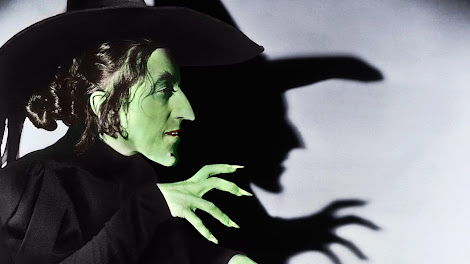BOOK REVIEW : IN DEFENSE OF WITCHES : The Legacy of the Witch Hunts and Why Women Are Still on Trial By Mona Chollet. Translated by Sophie R. Lewis.
UNCONVENTIONAL WOMEN A LA FRANCAISE : Catalonia's left-leaning Parliament recently passed a resolution pardoning the hundreds of women executed as witches between the 15th and 18th centuries.
A similar bill is making its way through the Scottish Parliament. Both were inspired by growing outrage about historical - and contemporary - femicide by a post-MeToo impulse to honour women who were burned, hanged and drowned as heretics.
This same spirit of exoneration through ''In Defense of Witches,'' a thought-provoking, discursive survey by Mona Chollet, a bright light of Francophone feminism.
Chollet celebrates not only the witches of the past, but also the so called ''witches'' of today : independent women who have chosen not to have children, aren't always coupled, often defy traditional beauty norms [letting their hair go gray] and they operate outside the established social order.
THAT'S especially true in France, which may celebrate the femme fibre bit which, from its tax laws to its robust public day care, is built to promote the family and brotherhood.
It is also, not incidentally, a country where a certain vision of femininity supports the economy through the biggest beauty industry in the world.
Clearly, Chollet has struck a nerve. ''In Defense of Witches,'' her first book to appear in English, was a best seller when it came out in France in 2018.
A Swiss-born journalist and an editor at Le Monde Diplomatique, she has grown a following with work that calls attention to sexism, and gender-gap in salaries and societal pressures placed on French women in a culture with clear ideas about how women are expected to look and act - and of course to make it all look effortless.
Anglo-American women have long been obsessed by cliches of French femininity. [Today that's perhaps best exemplified by the series ''Emily in Paris,'' in which a naive American is inducted into the worldly ways of the French.]
But in today's real France, Chollet has emerged as a quiet revolutionary, pushing back against the cliches and the patriarchy that shapes them.
And as an embodiment of female power and resistance to male domination, what better figure than the witch? Since Chollet's childhood, the word ''has had a magnetic hold on me,'' she writes.
''Something about it fizzes with energy. The word speaks of a knowledge that lies close to the ground, a vital power, an accumulated force of experience that official sources disdain or repress.''
''In Defense of Witches'' explores how women who assert their powers are too often seen as a threat to men and society, how those who don't bear children are too often seen as a disturbing anomaly and how women at middle age too often disappear.
THESE DAYS they're not burned at the stake but sidelined at work by the insidious invisible hand of midcareer misogyny, or by standards of beauty that place a higher premium on youth, with women's expiry date'' tied to their fertility.
Sometimes, by choice or by circumstances, a woman becomes what Chollet calls a ''femme fondue,'' a dissolving woman, who becomes overwhelmed by ''the service reflex'' and disappears into motherhood or child care, losing her grip on the first person.
Chollet is particularly hard on men who dump their wives for far younger women. In a chapter titled ''Shattering the Image of the Old Hag,'' she quotes the late, great Clarrie Fisher, who before she died at 60 once observed :
''Men don't age better than women, they're just allowed to age.'' For the witches of the past - who are a through-line in the book - and women of today, who still seem - most problematic about women's aging is their experience,'' Chollet writes.
But this experience doesn't always lead to confidence. ''A woman who is self-assured, who asserts her opinions, her desires and dislikes, is very swiftly written off as a harpy, a virago, by both partner and her peers.
ABOVE ALL, ''In Defense of Witches'' explores what it means for a woman not to have children, and how women can find a positive identity without motherhood.
In a chapter called ''Wanting Sterility,'' Chollet explains her own choice not to have children : because she has misgivings about civilization and the environmental impact, as well as for more personal reasons.
''Nothing on earth could persuade me to guide a new person through those terrible ordeals known as childhood and adolescence,'' she writes.
The Historic Sadness of this publishing continues. The World Students Society thanks review author Rachel Donadio.

.png)


0 comments:
Post a Comment
Grace A Comment!